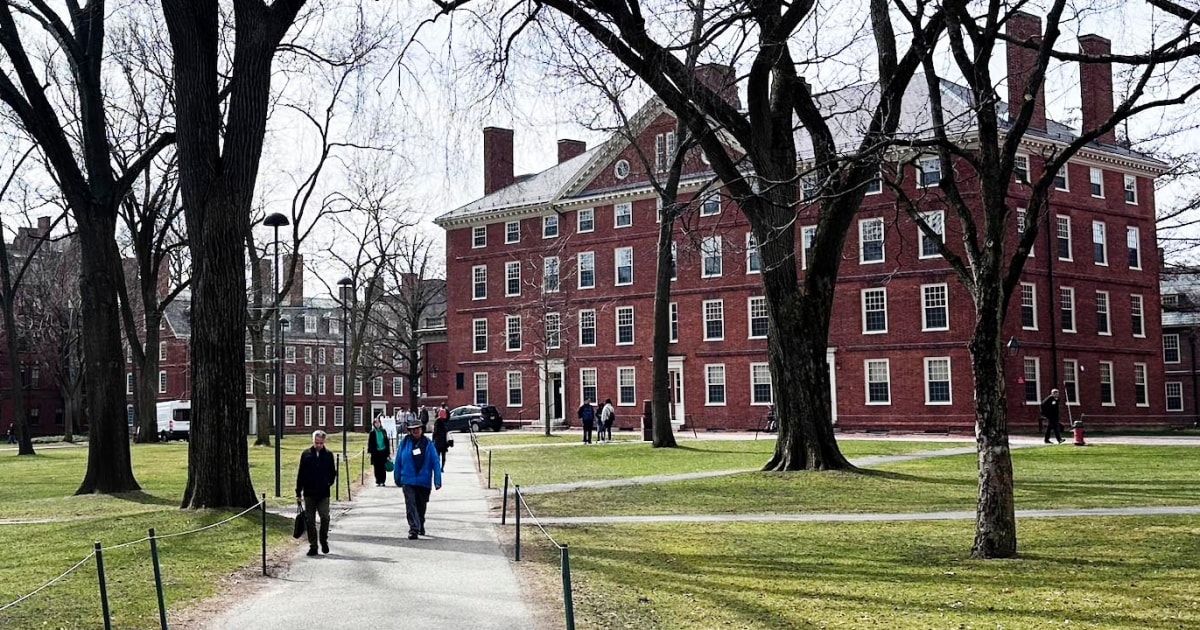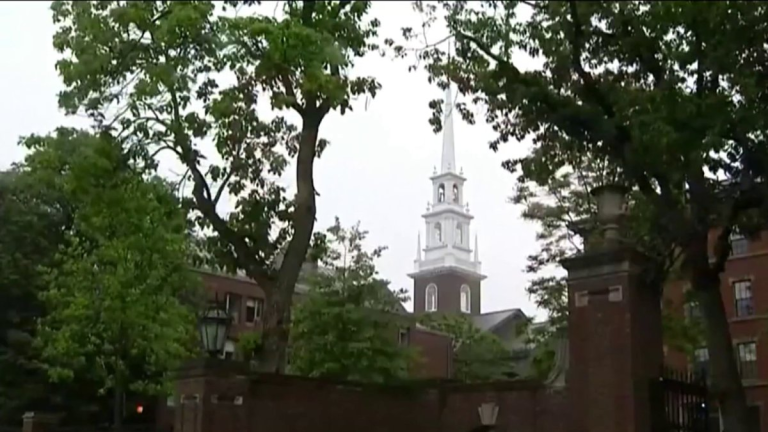
Recent Harvard funding cuts, driven by the Trump administration’s insistence on compliance with controversial governance changes, have sparked widespread concern across the academic landscape. The federal funding in question, amounting to $9 billion, not only supports the university’s research initiatives but also catalyzes innovation in critical fields such as medicine and engineering. As Harvard pushes back against the administration’s demands—mandating viewpoint audits of its faculty and students—many scholars are voicing fears about the implications for academic freedom and the integrity of university governance. With over $2 billion in federal aid frozen following Harvard’s resistance, discussions about the future of higher education in America have intensified. Advocates argue that these funding cuts threaten not only the university but the broader context of research and discovery vital to the nation’s progress.
The challenges facing Harvard and similar institutions are significant in light of recent financial constraints imposed by governmental pressures. Budget reductions stemming from federal sources jeopardize research initiatives and academic exploration that have historically propelled the U.S. to the forefront of innovation. The insistence on altering university policies and practices reflects a broader narrative of political influence permeating educational environments, raising alarms about the limitations placed on scholarly expression. As higher education institutions navigate these tumultuous waters, the importance of safeguarding autonomy and promoting a diverse range of academic perspectives becomes increasingly critical. Ultimately, the discourse surrounding these funding dilemmas speaks to a larger struggle for the preservation of educational integrity amidst shifting political landscapes.
Impact of Trump Administration Policies on Academic Freedom
The recent actions of the Trump administration have raised significant concerns regarding academic freedom across higher education institutions. This administration’s demands for compliance with certain governance changes and the proposal of viewpoint ‘audits’ serve as a worrying sign that politicization is creeping into academia. Scholars like Joshua Cherniss point out that this level of government interference resembles tactics seen in authoritarian regimes, where the expression of ideas and research is tightly controlled. The implications for universities like Harvard are particularly dire, as they threaten the foundational principles of inquiry and independent thought that drive innovation.
Moreover, the chilling effect of the Trump administration’s stance on Harvard and similar institutions extends beyond the immediate governance concerns. Many scholars fear that compliance may lead to self-censorship and a stifled academic environment. If researchers feel pressured to conform to governmental ideologies, the rich diversity of thought and critical perspectives that universities are supposed to cultivate will be severely compromised. This not only affects current academic discourse but could also deter future students and researchers from pursuing paths that challenge conventional boundaries.
Consequences of Harvard Funding Cuts
Harvard’s rejection of the Trump administration’s demands has resulted in significant funding cuts, totaling approximately $9 billion, with over $2 billion immediately frozen. These cuts pose a direct threat to vital research initiatives that drive groundbreaking discoveries across various fields such as medicine and engineering. Students and faculty, like Amberly Xie, have expressed deep concern that these financial constraints will impede scientific advancement, undermining years of progress in critical areas of study that not only push the boundaries of knowledge but also have profound real-world applications.
The funding cuts also raise questions about the future of higher education in America. As federal funding becomes increasingly contingent upon compliance with governmental mandates, the autonomy that institutions like Harvard have historically enjoyed may be eroded. This shift could discourage innovative research and limit the scope of academic exploration, as scholars might prioritize projects aligned with political expectations over those of genuine societal need. The repercussions extend far beyond Harvard, impacting the entire landscape of higher education and its ability to address contemporary challenges.
A Broader Impact on University Governance
The ongoing funding cuts are symptomatic of a larger trend towards politicization in university governance. The conditions sought by the Trump administration for continued support are reshaping the landscape of higher education, as institutions may succumb to pressures that compromise their independence. The impact on governance structures within universities is profound, as compliance with federal demands could lead to administrative changes that favor political agendas over academic integrity. Such transformations not only jeopardize the mission of institutions like Harvard but also potentially set a precedent for other higher educational institutions.
Additionally, scholars and leaders in academia fear that this erosion of governance autonomy will hinder the collaborative spirit necessary for groundbreaking research. Institutions thrive on intellectual diversity and the freedom to explore controversial ideas; with increased oversight and pressure from the government, the ability to engage in bold, independent research could be severely restricted. The risk of self-censorship looms large, as academic freedom becomes a casualty in the struggle against external influences.
Potential Fallout for Higher Education in America
The fallout from the Trump administration’s actions extends well beyond Harvard and affects the entire framework of higher education across the nation. As funding freezes and demands for compliance escalate, universities may find themselves at a crossroads, struggling to balance financial viability with the preservation of academic freedom. This tension might lead institutions to consider compromising their values in order to secure necessary federal support, which, in turn, could undermine the education system’s role as a bastion of free thought and innovation.
Furthermore, the implications of this governmental encroachment on higher education could dissuade prospective students from choosing careers in research and academia altogether. Talented individuals might be discouraged from pursuing studies in fields crucial for societal advancement, fearing a lack of support for intellectual exploration. The long-term consequences could hinder the United States’ ability to maintain its competitive edge in technological and scientific fields, ultimately weakening national prosperity and security.
Frequently Asked Questions
What are the implications of Harvard funding cuts under the Trump administration?
The Harvard funding cuts linked to the Trump administration could have severe implications for research and innovation. With over $9 billion in federal funding at stake, these cuts threaten to halt critical scientific advancements that have historically emerged from Harvard’s research initiatives. The administration’s demands for compliance with altered university governance and hiring practices raised concerns about academic freedom and autonomy.
How do Harvard funding cuts affect academic freedom?
Harvard funding cuts, particularly those imposed by the Trump administration, are perceived as a direct attack on academic freedom. These cuts mandate compliance with viewpoint audits and other governance changes, raising alarms about the government’s influence over university curricula and faculty expression. Scholars have voiced concern that such actions undermine the integrity and independence of higher education institutions.
In what ways does federal funding influence university governance?
Federal funding, such as that which supports Harvard’s extensive research programs, often comes with stipulations that can influence university governance. The Trump administration’s funding cuts serve as an example, where demands included changes to governance and hiring practices. Such requirements can challenge the autonomy of universities to manage their internal affairs and can lead to broader implications for academic policy-making.
What are the risks of frozen federal funding for higher education?
Frozen federal funding, like the $2 billion that Harvard faced due to Trump administration demands, poses significant risks to higher education. It can lead to a slowdown or cessation of vital research, impacting not only academic progress but also the ability to address pressing societal issues through innovation in medical, engineering, and scientific fields.
Why are Harvard funding cuts viewed as a threat to scientific progress?
The funding cuts at Harvard, driven by the Trump administration’s policies, are viewed as a threat to scientific progress because they jeopardize resources allocated to critical research areas. Scholars fear that these cuts will slow down groundbreaking innovations that have historically been developed in academic settings, hindering advancements that contribute to both national and global welfare.
How could university governance be affected by the Trump administration’s stance on funding?
The Trump administration’s stance on funding could lead to significant shifts in university governance at institutions like Harvard. By imposing conditions tied to federal funding, universities may find themselves forced to alter hiring practices and curricular content, thereby limiting academic autonomy and infringing upon self-governance principles that are essential for maintaining a robust educational environment.
What are scholars saying about the effects of Harvard funding cuts?
Scholarly reactions to Harvard funding cuts highlight widespread concern regarding impacts on academic freedom and research innovation. Many experts argue that such cuts represent an escalation in governmental control over universities, which could lead to reduced effectiveness in tackling critical research challenges and undermine the university’s commitment to fostering open inquiry.
| Key Point | Details |
|---|---|
| Funding Cuts | Harvard rejected Trump administration demands linking $9 billion in federal funding to changes in governance and practices. |
| Impact on Research | Over $2 billion in funding was frozen, which has historically supported groundbreaking innovations across multiple scientific fields. |
| Concerns from Scholars | Students and scholars expressed fears that funding cuts would impede scientific progress and that university self-governance is at risk. |
| Criticism of Administration | Scholars have criticized the Trump administration’s actions as detrimental to academic freedom and a threat to the nation’s global standing. |
| Broad Consequences | Concerns extend to impacts on U.S. security, stability, and prosperity due to weakened academic institutions. |
Summary
Harvard funding cuts have sparked significant controversy among scholars and university officials. The rejection of demands from the Trump administration to link federal funding to compliance with specific governance changes raises crucial questions about academic autonomy. As voices from the academic community emphasize, these funding cuts not only threaten the advancement of critical research but also pose a broader risk to the integrity and stability of higher education in the United States.



